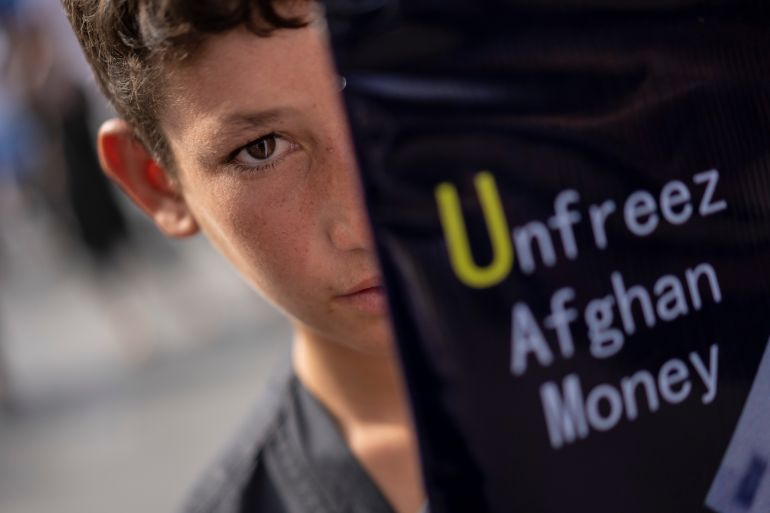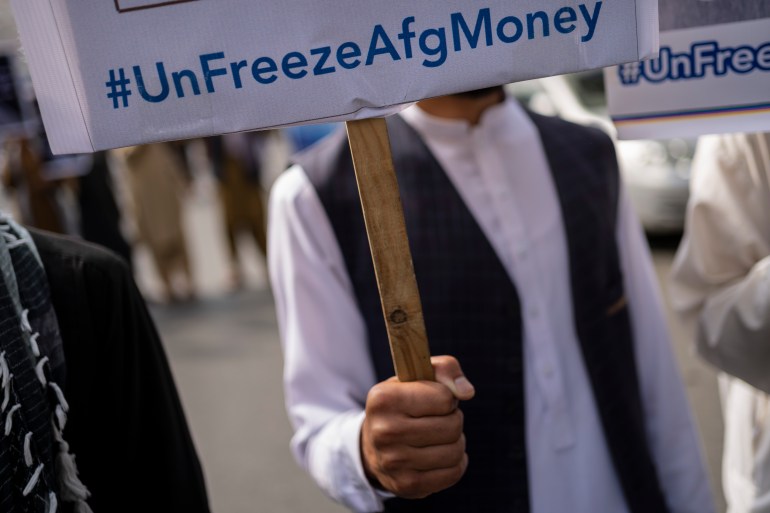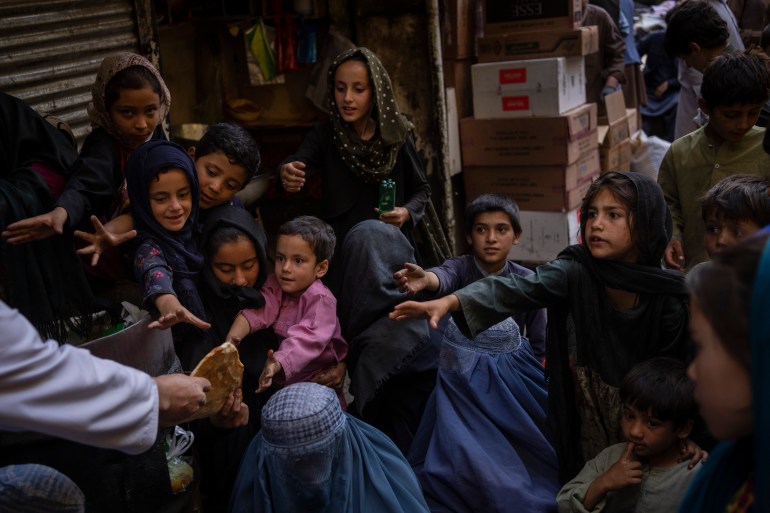US allows aid for Afghanistan despite sanctions against Taliban
The US is granting two licences allowing various entities to provide humanitarian assistance to the country.

Amid concern that sanctions on the Taliban would worsen a continuing humanitarian crisis in Afghanistan, the United States has taken steps to pave the way for aid to flow into the economically paralysed nation.
The US Treasury Department on Friday said it issued two general licences, one allowing the US government, NGOs and certain international organisations, including the United Nations, to engage in transactions with the Taliban or Haqqani Network – both under sanctions – that are necessary to provide humanitarian assistance.
Keep reading
list of 3 itemsAt Afghanistan’s ‘Guantanamo’, ex-inmates recount abuse, torture
Month after Taliban takeover, Ukrainians stranded in Afghanistan
The second licence authorises certain transactions related to the export and re-export of food, medicine and other items.
“Treasury is committed to facilitating the flow of humanitarian assistance to the people of Afghanistan and other activities that support their basic human needs,” Andrea Gacki, director of the US Treasury’s Office of Foreign Assets Control, said in the statement.

She added that Washington will continue to work with financial institutions, NGOs and international organisations to ease the flow of agricultural goods, medicine and other resources while upholding sanctions on the Taliban, Haqqani Network and others.
The Taliban seized control of the country last month as foreign forces allied with the US withdrew from Afghanistan after a 20-year war. The events culminated in the capture of the capital, Kabul, on August 15, two decades after the Taliban was driven from power by a US-led campaign following the September 11 attacks on the United States.
The United Nations said that at the start of the year more than 18 million people – about half of Afghanistan’s population – require aid amid the country’s second drought in four years.
UN Secretary-General Antonio Guterres said last week that Afghanistan is on “the verge of a dramatic humanitarian disaster” and has decided to engage with the Taliban in order to help the country’s people.
US President Joe Biden’s administration has said it is committed to allowing humanitarian work in Afghanistan to continue, despite Washington listing the Taliban as a specially designated global “terrorist” group.
The sanctions freeze any assets the Taliban has in the US and bar Americans from dealing with the group, including the contribution of funds, goods or services.

Friday’s move expands on that specific licence, allowing international organisations and NGOs to pay taxes, fees, import duties or permits, licences or other necessary transactions for assistance to reach the people of Afghanistan.
The licences allow NGOs and foreign financial institutions to continue humanitarian assistance such as the delivery of food, shelter, medicine and medical services, including COVID-19 assistance, a Treasury spokesperson said.
“We have not reduced sanctions pressure on Taliban leaders or the significant restrictions on their access to the international financial system,” the spokesperson said.
On Friday, Afghans held a protest in Kabul, calling for the release of central bank assets held in the US.
The US froze $9bn US in Afghan foreign reserves held in New York and the World Bank, and the International Monetary Fund and European Union have suspended financing for projects in Afghanistan.
Without access to these funds, the interim government in Kabul cannot even pay the import taxes needed to bring containers of food from Pakistan, the country’s Chamber of Commerce and Industry officials said.
The World Health Organization, Afghanistan’s representatives from Doctors Without Borders, and the International Federation of the Red Cross and the Red Crescent said the country’s health system is on the brink of collapse and has urged for funding to resume for the country’s health programme.